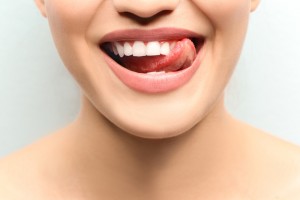Fun Facts About Your Teeth and Mouth
Your teeth and mouth are amazing structures that help hold up the shape of your face. Your smile is the first thing 50% of others notice about you. However, how much do you actually know about that smile of yours? Did you know that you have 20 teeth when you are young but 32 when you’re older? Or that your tongue has over 10,000 taste buds on it? There are many facts about your mouth and teeth you may not know. Find out what some of those are!
The Importance of Your Smile
Did you know that your smile is one of the first features others notice? Your smile can say a lot about how healthy you are. Invisalign conducted a study comparing healthy, straight smiles to crooked smiles. From hundreds of observers, they found that people with healthier, straighter smiles were perceived better than those with unhealthy or crooked smiles:
- 1/3rd of people notice your teeth before any other facial feature.
- Straighter, healthier teeth made people 45% more likely to be hired for a job.
- People perceived others as 58% more wealthy, successful and more likely to get a date.
- Healthier smiles made a person 73% more trustworthy than someone who didn’t care for their smiles.
Most of all, in all studies conducted, people who took care of their teeth through straightening or good oral hygiene (that showed) were seen as much more confident. Great smiles lead to more smiling, more confidence and lead to people trying harder than those who don’t take care of their teeth. Besides simply staying healthy, your teeth say a lot about your personality and your health as a whole.
What About Your Teeth?
- Your teeth are the strongest substance in the body. They are made of almost pure minerals, whereas the bones are filled with spongy cartilage, tissues and blood vessels, and are a bit weaker than the teeth.
- Infants only grow 20 baby teeth in their mouth, which will eventually fall out to make way for 32 adult teeth.
- Many adults have 4 of those teeth removed, and these are called the “wisdom teeth”, or your “third molars”. Not everyone is born with third molars and it all depends on genetics. If you have them, getting them taken out can prevent tooth crowding, broken teeth and infections.
- There are 4 different types of teeth depending on their shape, which helps to cut up food in different ways: incisors (front teeth), cuspids/canines (pointy), molars (back teeth) and premolars (mid-size).
- The adult teeth have several layers: the hard, outer enamel layer that is 96% mineral content, then a softer (yet hard) dentin layer, and a soft, pulpy center. That center of your teeth houses nerves and blood vessels that nourish the teeth.
- Between 500 and 700 different types of mouth bacteria have been found in humans. Most people only have around 50 or so mouth bacteria, not all of them bad.
- Oral bacteria multiplies every 4-5 hours. That is why you should brush your teeth multiple times a day so that bacteria doesn’t stick to your teeth.
- Acids can erode your tooth enamel. That includes carbonic acid from carbonated drinks (even water), and citric acid from juices, lemonade and citrus fruits. Acids stay on your teeth for about 30 minutes, making the surface softer as it erodes. That is why you want to wait about 30 minutes before your brush your teeth, or you can take off more tooth mineral layers.
- Don’t skip flossing! Flossing gets 40% of your tooth surfaces that brushing can’t reach.
- You can keep your natural teeth for life if you are really good with brushing, flossing, fluoride and mouthwash use, as well as visiting the dentist.
Your Mouth as a Hole
It’s not only important to take care of your teeth, but your entire mouth as a whole. You may have great teeth that are free from decay, but if you are not taking care of your gums and mouth tissues, you can still end up with disease. Generally, tooth decay and gum disease go hand-in-hand because they both stem from a lack of oral hygiene coupled with too much sugar and starches that turn into plaque. When you eat those sugary, starchy foods, that sugar mixes with bacteria in your mouth almost immediately.
Instead of getting washed away with water or saliva, that plaque sticks to your teeth, especially along the gumline. It is acidic and starts working on eroding your tooth enamel away. If you’re not brushing often (especially before bed), that plaque acid has plenty of time to weaken your tooth enamel, creating areas of decay that are called “cavities”. The acidic nature of plaque also irritates your gums, which makes them try to get away. The gums recede and become red, inflamed and may even bleed easier. That is how gum recession and tooth loss with gum disease happens.
You can prevent these two diseases if you practice good oral hygiene on your teeth each day. Eating a good diet that is low in sugar and high in nutrients (to remineralize your teeth) can help your mouth as a whole stay healthy. Brush your tongue to remove pockets of bacteria. Eat well and drink water over other liquids. All of these habits will keep not only your mouth healthier, but you healthier.
Your Teeth and Mouth
Every part of the human body is amazing. The better you take care of those parts, the longer they will last you. When you take care of your teeth and mouth, it can affect the rest of your health, as many health problems start from either your food, bacteria or viruses that start in the mouth. If you are prone to oral health problems or overall wellness problems, see the difference your health can take by spending some extra time on your teeth each day. For oral health tips and recommendations, call Dr. Evanson’s office at (720) 409-0008!
Leave a reply →









